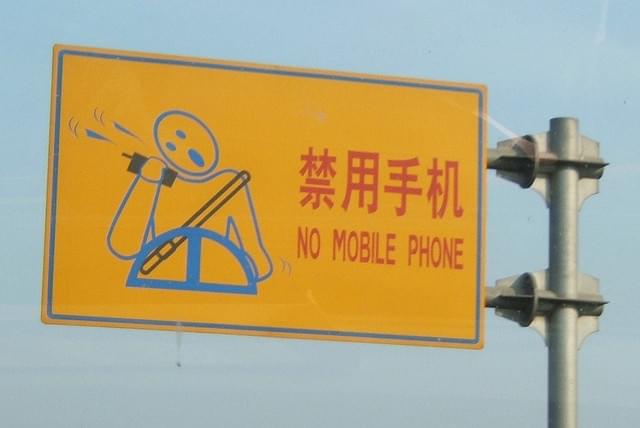6 small business marketing tips direct from Google
Google dominates our online lives; in fact around 88% of all internet searches in the UK are made via its search engine. That means if you’re running a small business, Google has the potential to drive a huge number of visitors to your website, either through organic search or AdWords.
So wouldn’t it be nice to get some online marketing advice direct from the company itself? Well in May, 123 Reg attended the Business Show at London’s Excel. There, Googler Becky Wilson presented her top online marketing tips. Here’s a digest of what she said, along with a few extra pointers and resources.
Having an online presence that you own is vital
Although it’s possible to build an online business entirely on third-party platforms such as eBay or Etsy, you should always create your own website to ensure you have an online presence that you manage and maintain.
“The advantage of having your own website is that it gives you complete control over your brand,” Becky said.
“It allows you to enhance your own brand and get further out there online. If you have your own website, you can use it to do multiple things for your customers; not just selling or telling them ‘this is where we are’.
“You can use it to get their details to create a mailing list and email them new offers, or advertise your social media presence.
“If you’ve got your own website, you’re able to get your message out much more clearly than if you don’t have your own website.”
Need to build your own website? Check out our guide to getting started on the web.
Want to begin building your email list in order to send out special offers? Check out our guide to getting started with email marketing.

Your website needs a purpose and a goal
When customers land on your website is it clear what they should be doing? According to Becky, ensuring that a site has an obvious purpose that’s easy to understand is something that many business owners forget. And as a result they end up missing out on sales because people simply don’t understand what they should be doing next.
Becky said: “When someone lands on your homepage, what do you want them to do? Do you want them to look at products? Do you want them to contact you?
“Have a look at your own website and when you look at the homepage think ‘is it immediately clear what I want to people to do?’ because if it’s not, you’re missing an opportunity there.”
If you want to work on ensuring your website is relevant to your customer’s needs, check out our guide to understanding your website visitors.
Site speed is absolutely crucial
Site speed is something Google has focused on a lot recently, so it was no surprise when Becky mentioned it in her presentation.
“If you’re going to a website, you know how annoying it can be if it’s taken five minutes just to load the homepage. You’re potentially losing people.
“There are free site speed testers out there that will tell you how quickly your site loads. Make sure you use those free tools, because if you’ve got a slow website you’re in danger of losing potential customers coming to your website.”
You can learn more about site speed in this guide.
You can test the speed of your site here.
If you’re interested in more than just site speed, then the 123 Reg Search Engine Optimiser Tool will provide you with a free search engine optimisation report that includes site speed.
A mobile-friendly site is absolutely crucial
This is another area where Google has placed a strong focus recently. So again, it wasn’t a huge surprise when it came up in Becky’s talk.
She said: “How patient are you when someone’s site doesn’t load on mobile, or you have to pinch and zoom or you can see what link you’re clicking on? It’s really annoying isn’t it? Make sure your site is mobile friendly. If you’re not mobile friendly, that’s probably the one big thing you need to look at doing.”
You can learn more about Google and mobile-friendly website in this guide.
While you can learn about getting a mobile-friendly site here.

Keep content relevant and short
It can be tempting to pack your site full of content in the belief that more is always better. But in fact too much content can be as off putting to potential customers as too little content.
The key is to make sure people can quickly see that you offer what they want. If you’re providing too much unnecessary information, then customers may give up and look for a simpler online experience with one of your rivals.
To illustrate this, Becky used the example of contact forms.
She said: “If you’re wanting someone to fill out a form and contact you, you don’t need to know their mother’s maiden name, you don’t need to know where they’ve been on holiday. Just get the absolute basic minimum information that you need. So you might just need to get their name and email address.”
For more information on what makes good content, take a look at this article.
Use third-party platforms to promote your site
Although having your own site is a must, that doesn’t mean you should ignore third-party platforms all together. Social networks are a great way to spread the word about your business. Just make sure that ultimately, all those potential customers end up visiting your site, rather than simply liking you on Facebook or following you on Twitter.
“Everyone’s already familiar with social media platforms,” Becky said. “So it’s so much easier to actually drive traffic towards them. The only problem is you do have a little less control over your brand.
For help getting started with social media, check out this guide.
Summing up
So there you have it, six pieces of top advice straight from a Googler. If you’ve got any more questions, get in touch via Twitter or Facebook.
